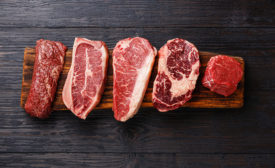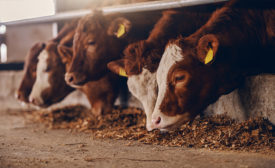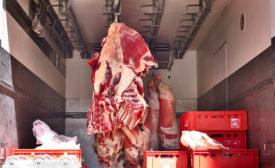Home » AMSA
Articles Tagged with ''AMSA''
2024 AMSA RMC to celebrate meat science heritage
Session topics include emphasizing a shift toward value over price competition.
May 2, 2024
AMSA Commentary
Cold chain management during transportation can impact beef quality
Research suggests the impact of transportation temperature is variable across subprimals
Christina Bakker
Lydia O'Sullivan
Keith R. Underwood
Amanda D. Blair
Heather Rode-Atkins
Kyle Grubbs
January 22, 2024
American Meat Science Association offers technical assistance to meat processors
Four-pronged funding effort leverages the expertise of AMSA staff and our more than 2,500 members.
Read More
AMSA RMC attendees impact local community in St. Paul, Minn.
Effort distributes more than 700 high-protein snack bags to young students facing food scarcity.
Read More
Arkansas meat science program harbors national aspirations
The meat science department has been rebuilding programs and revitalizing its curriculum.
Read More
Northwest Missouri State University prioritizes profession-based learning in meat science
Northwest’s Agricultural Learning Center allows for numerous hands-on learning opportunities for undergraduates studying meat and food science.
Read More
Stay ahead of the curve. Unlock a dose of cutting-edge insights.
Receive our premium content directly to your inbox.
SIGN-UP TODAYCopyright ©2025. All Rights Reserved BNP Media.
Design, CMS, Hosting & Web Development :: ePublishing









